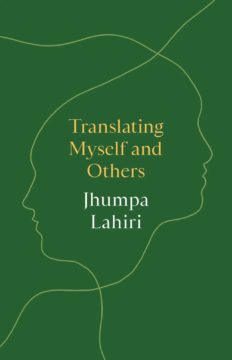Benjamin Moser in The New York Times:
 Last fall, I made my first visit to London since the start of the pandemic. A routine commuter flight from Europe felt like a great adventure, and once I’d jumped through the bureaucratic hoops, I was excited to arrive. But the city looked disappointingly unchanged after everything the world had gone through. The only thing that really shocked me was something I hadn’t expected: hearing people speaking English. After two years away from it, I had never felt so moved to encounter my own language.
Last fall, I made my first visit to London since the start of the pandemic. A routine commuter flight from Europe felt like a great adventure, and once I’d jumped through the bureaucratic hoops, I was excited to arrive. But the city looked disappointingly unchanged after everything the world had gone through. The only thing that really shocked me was something I hadn’t expected: hearing people speaking English. After two years away from it, I had never felt so moved to encounter my own language.
Hearing a mother tongue is like stepping into a warm bath. But one of the disquieting discoveries that studying foreign languages brings is the awareness that your own can be a trap. By providing a steady drip of prefabricated words and ideas, your only tool for thinking and feeling can just as easily become a tool for not thinking, for not feeling; and when forced to do without those words and ideas, you realize how many of your so-called thoughts are nothing more than clichés grafted onto you by the language with which you grew up. In “Translating Myself and Others,” the Indian American writer Jhumpa Lahiri traces a journey away from the automatisms of English.
When she was 45, Lahiri decided to begin writing in Italian. Her choice was considered mystifying, eccentric: “Why Italian instead of an Indian language, a closer language, more like you?” Yet the whole point, of course, was to be less like her — less trapped by unconscious accretions of unthinking. Italian, for her, was an entirely learned language. “Nothing came to me naturally; I had to pay my dues,” she writes.
More here.
